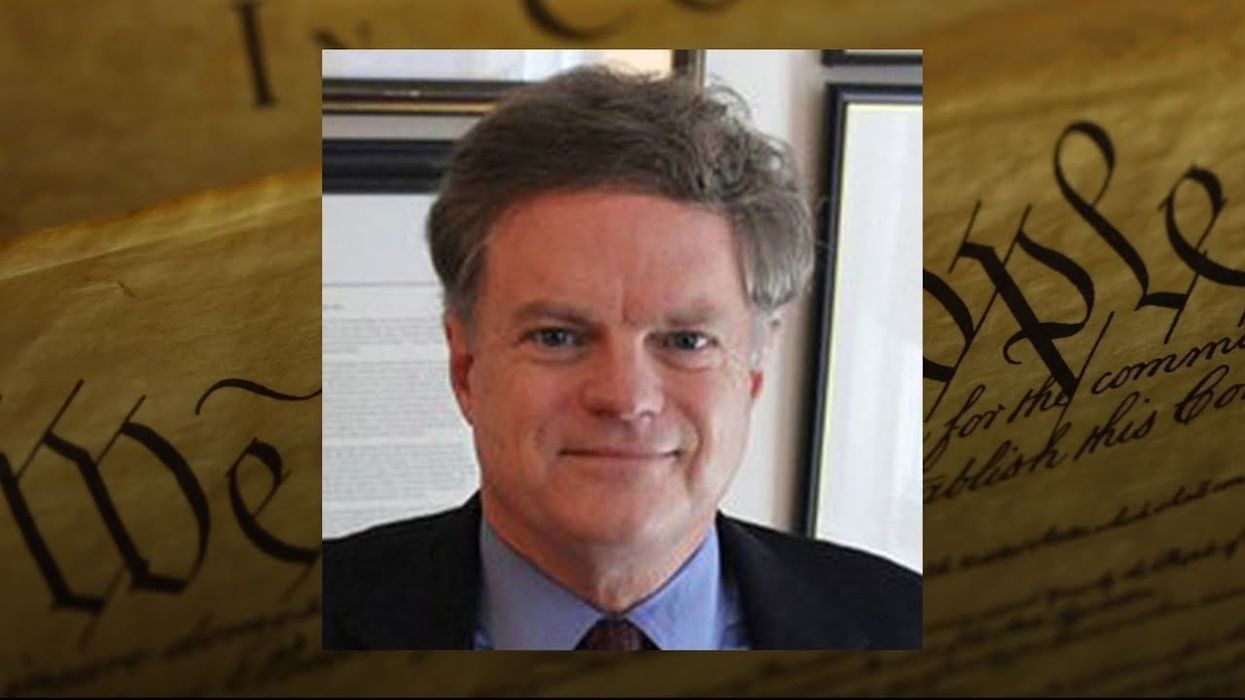The Fulcrum presents The Path Forward: Defining the Democracy Reform Movement. Scott Warren's interview series engages diverse thought leaders to elevate the conversation about building a thriving and healthy democratic republic that fulfills its potential as a national social and political game-changer. This initiative is the start of focused collaborations and dialogue led by The Bridge Alliance and The Fulcrum teams to help the movement find a path forward.
John Bridgeland is the CEO and Executive Chair of More Perfect and former Director of the White House Domestic Policy Council under President George W. Bush. More Perfect is a recently launched bipartisan initiative designed to engage a wide range of institutions and Americans in the work of protecting and renewing American Democracy.
With a distinguished National Advisory Council-including leading democracy scholars, practitioners, and former elected officials from across the political spectrum, More Perfect is spearheading an ambitious effort to think bigger and collaborate more intentionally on ways to improve American democracy. The initiative is structured around five “democracy goals” informed by the Our Common Purpose report from the American Academy of Arts and Sciences:
- Universal civic learning
- National service and volunteering
- Bridging divides
- Trusted elections and more representative and responsive governance
- Access to trusted news and information
One ongoing concern in the pro-democracy ecosystem is its fragmentation- many organizations operate in silos, promoting individual solutions, rather than uniting around shared, ambitious objectives. I appreciated Bridgeland’s focus on collaboration and gearing this effort around specific, actionable goals. The hope, already showing early signs of success, is that articulating a coherent set of priorities can attract more philanthropic investment, which in turn, enables deeper collaboration and greater impact.
Still, I wonder whether these high-level goals will resonate beyond the grasstops that often define the democracy space, and whether a truly bipartisan approach is possible in today’s hyper-polarized environment. I appreciated the opportunity to discuss the overall initiatives and address these questions with Bridgeland. His key reflections included:
- Collaboration is really hard, but possible (and money helps): Genuine collaboration in the democracy ecosystem is challenging. Organizations have their own strategies and need to raise their own funds. As Bridgeland relayed from a friend, “Collaborations are unnatural acts among non-consenting adults. So it was not easy to foster collaboration.”
Bridgeland has been involved in efforts over the last 20 years focused on global health and development, specifically on malaria control. He noted that the creation of the Sustainable Development Goals, which were adopted by the UN General Assembly in 2015, brought together diverse institutions and catalyzed public and private partnerships that helped spur new investment, innovation, and progress.
This approach helped spark the idea for the five democracy goals, but this did not come easily. Bridgeland reflected that he talked to an advisor who expressed that “There are all these organizations..bursting into the democratic renewal space, but it’s like the Wild West. I can’t tell what the return on investment is.”
By focusing on a clear set of five goals, More Perfect has been able to bring new funders to the table. Demonstrating that collaboration can raise all boats, both in terms of impact and budget, has helped catalyze genuine collaboration.
- State and local efforts are at the frontlines: Bridgeland was notably silent on federal policy—and didn’t mention Trump—focusing instead on what can be done at the state and local levels. This emphasis has also emerged in other interviews in the series.
More Perfect has been working with governors across the country, from all parts of the political spectrum, to focus on the goals of democracy. Additionally, Bridgeland noted that this moment may actually catalyze more interest and need at the local level. “There’s an interest in many of these goals, and an appetite to actually do things in states and localities…with the downsizing of governments and the efforts underway at the federal level, and Congress not engaging on these issues.”
Bridgeland hopes that if states across the country make concrete progress on issues like civic learning, bridging differences, and service, that the grassroots support will swell up to the federal.
This focus on localism is both pragmatic and necessary, but it does raise questions about how state-level efforts interact with national dynamics, particularly when federal policy may undercut or conflict with local initiatives.
- America’s 250th Anniversary Offers an Opportunity: 2026 will be the 250th anniversary of the signing of the Declaration of Independence (known colloquially (maybe?!) as the Semiquincentennial). Bridgeland offered hope that such an event could provide a bipartisan opportunity to come together around some of these ambitious democracy goals. There is a risk that the Trump Administration will make the 250th anniversary more about its own goals and create divisions, but efforts like More Perfect’s could create a real opportunity.
Bridgeland noted that More Perfect is “launching a major campaign in connection with the 250th in a nonpartisan way that will focus on America's capabilities, not its brokenness, and get people to recognize that in a democracy, they have power and agency to…improve our union.”
In a period of so much tumult, uncertainty, and change, Bridgeland noted that there is an opportunity, and potentially a need, for a new “founding” for the country, and that the 250th offers a narrative to do so.
I’m grateful to Bridgeland for providing an ambitious plan and reflecting on the need for collaboration, a forward-looking strategy, and concrete goals. I’ll be curious how More Perfect and these goals advance over the next few years, especially during the 250th anniversary.
Scott Warren is a fellow at the SNF Agora Institute at Johns Hopkins University. He is co-leading a trans-partisan effort to protect the basic parameters, rules, and institutions of the American republic. He is the co-founder of Generation Citizen, a national civics education organization.




















